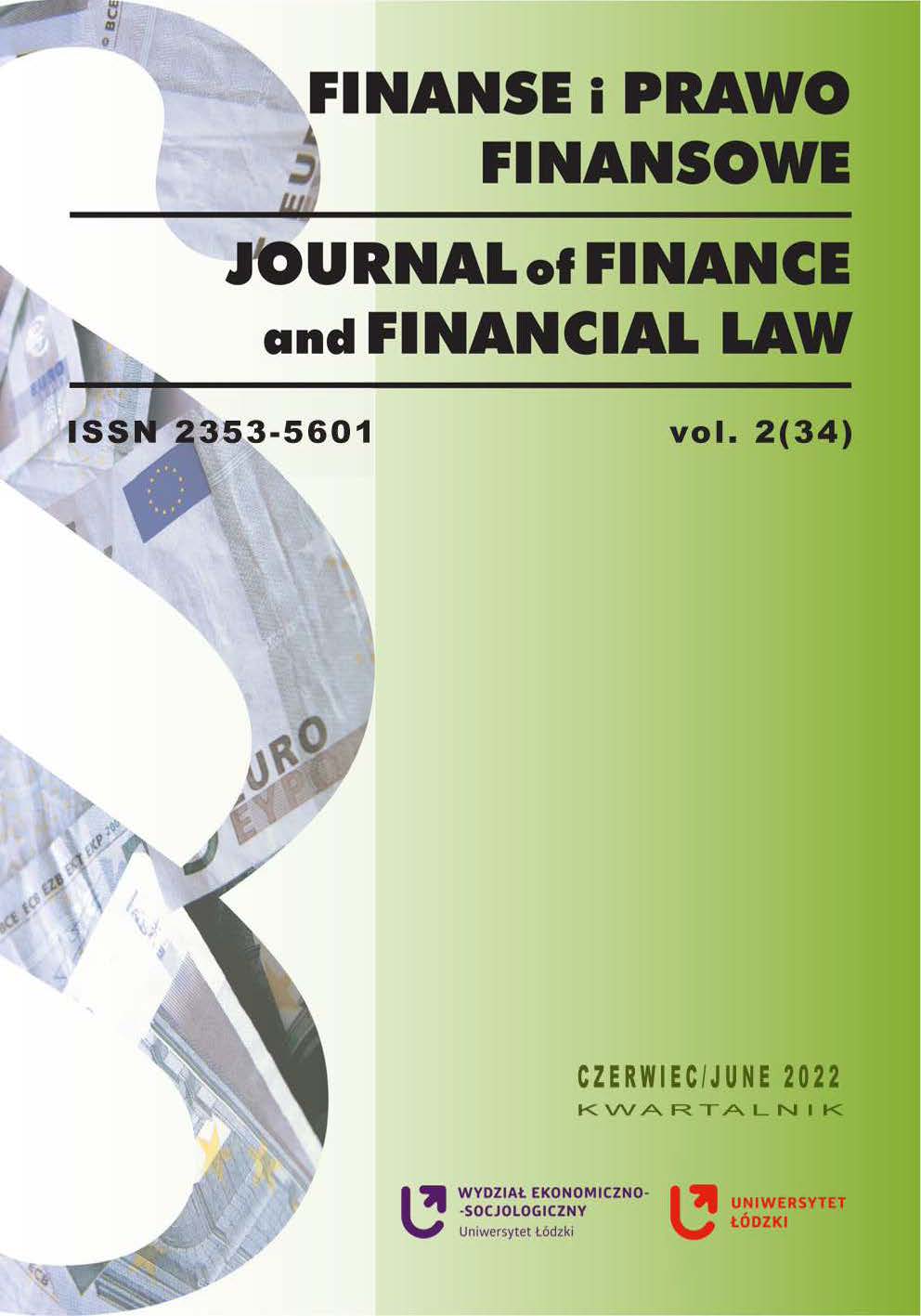„Wakacje kredytowe” – analiza potencjalnych skutków regulacji dla kluczowych interesariuszy
“Credit Holidays”- Analysis of Potential Effects of the Regulation on Key Stake-Holders
Author(s): Monika MarcinkowskaSubject(s): Economy
Published by: Wydawnictwo Uniwersytetu Łódzkiego
Keywords: credit holidays; help for borrowers; banks; bank stakeholders; banking system; effects of regulation; economic analysis of the law
Summary/Abstract: The purpose of the article/hypothesis: The aim of the article is to identify and assess the potential effects of the new regulation: "credit holidays", enacted by the Polish Sejm in June 2022, from the perspective of key stakeholders: current PLN mortgage borrowers, other customers (and potential customers) of banks, banks, bank shareholders, financial safety net institutions, and the economy. The hypothesis of the article states that the introduced regulations do not meet the conditions of good regulation, and in particular the principle of effectiveness and fairness of norms is violated. Methodology: The article uses the approach of positive economic analysis of law using the deductive method. Results of the research: The analysis of regulations introducing 'credit holidays' in Poland in 2022-23 leads to the conclusion that, in the short term, the only beneficiaries of the new regulations will be some borrowers (people with active PLN mortgage loan contracts) and regulators. The negative consequences of the analyzed regulations will be borne by other customers, the banks themselves and their owners, and - if other conditions are met - by the entire banking sector, and the economy. Some negative consequences may affect borrowers in longer term. An indirect long-term effect of regulations increasing protection of a selected group of clients may be disruption of development of financial awareness of the society, which will make independent, responsible management of personal finances more difficult, but also increase expectations for extension of this protection, disrupting free market processes. The analysis carried out has led to the conclusion that the regulation does not meet the postulate of being fair and effective, its cumulative consequences may be dangerous not only for banks and their owners, but also for customers, and collectively for the entire Polish economy.
Journal: Finanse i Prawo Finansowe
- Issue Year: 2/2022
- Issue No: 34
- Page Range: 125-159
- Page Count: 35
- Language: Polish

